Little Pakistan’s Clothing Stores, Cultural Hubs for Community, Struggle With Rising Costs
As housing prices soar and the Pakistani community leaves Brooklyn, clothing retailers in the borough’s Little Pakistan are questioning their future.

Nosheen Ahmed runs her family’s clothing store, Future Fashion, in Brooklyn’s Little Pakistan. Photo by Anna Bradley-Smith
Coney Island Avenue – the arterial route spanning from Prospect Park to Brighton Beach – cuts through four neighborhoods, houses thousands of people, and has stores peddling everything from secondhand goods to tax preparation services. Depending on which stretch you’re on, you’ll see banners offering immigration advice in a range of languages. It may not be Brooklyn’s most conventionally attractive street, but it is eye-catching.
A central swath, largely between Church Avenue and Avenue H, has become home to many of the city’s Pakistani stores and service providers. Striking Urdu signs, classic jewelry and clothing, and groceries color the sidewalks, as aromas of South Asian cooking waft from the doorways of the many restaurants on the blocks. When dusk falls, the tiny green and white LEDs of crescent moons and five pointed stars illuminate the roadway and street poles above what’s become known as the city’s Little Pakistan.
On that stretch, between Foster Avenue and Avenue H, Nosheen Ahmed’s family has its clothing store, Future Fashion, selling traditional Pakistani garments. Almost 32 years old, Future Fashion (listed on Google as ATIF Future Fabrics and Appliances) is the longest-standing traditional clothing store in the area, Ahmed said.
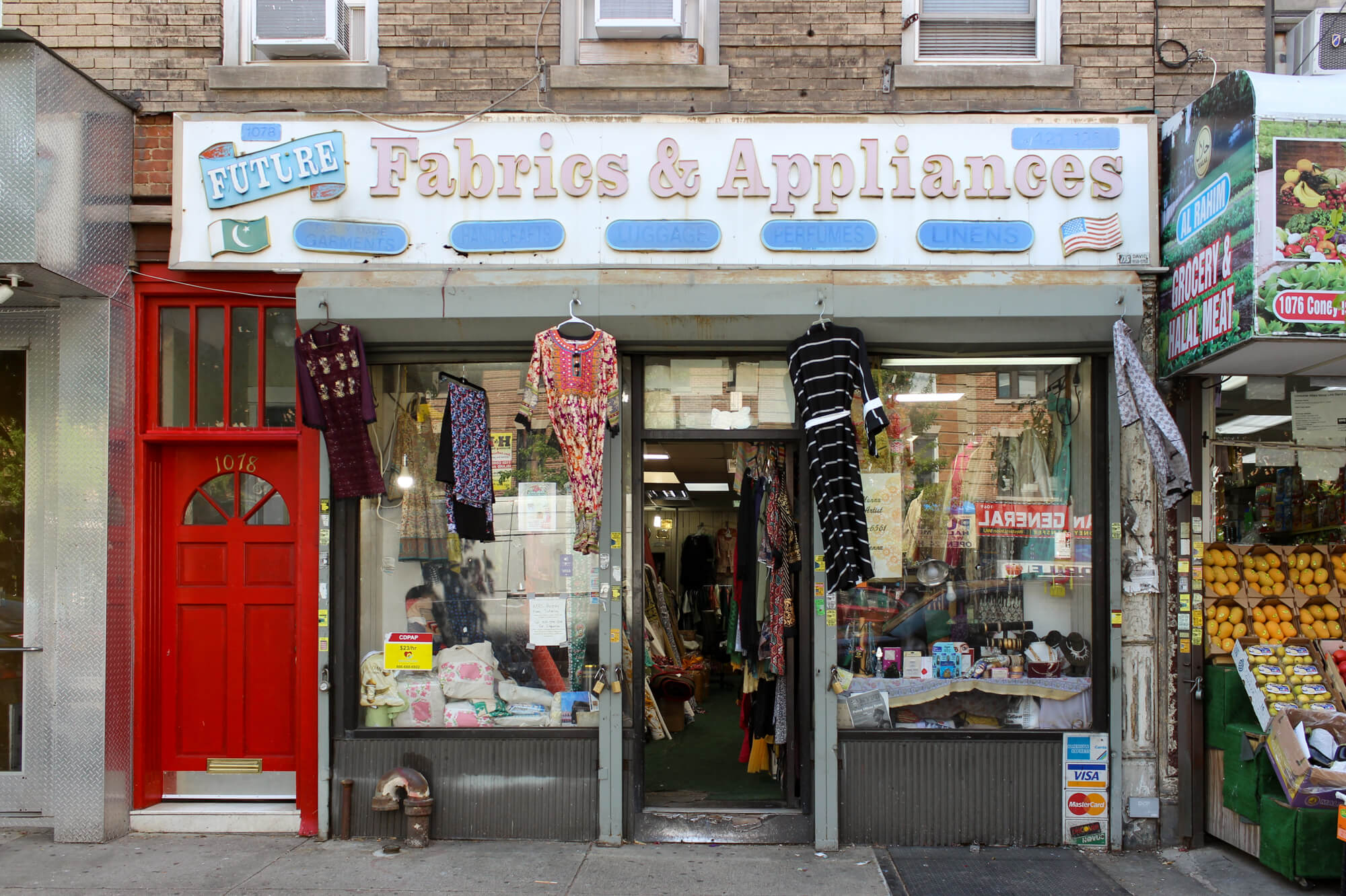
“It was first my grandmother’s, my mom’s mom, she had bought this from the previous owners back in 1991 and she had it for seven, eight years, and then my mom bought it off of her,” Ahmed said, sitting amongst the array of shalwar kameez and other traditional items. Five years ago, Ahmed started helping out and “basically took over.”
Like retailers across the city, Future Fashion – and all of Little Pakistan’s clothing stores – have had to deal with the shift to online shopping, rising rent prices, gentrification, the Covid-19 shutdowns, and now inflation and the cost of living crisis in the city. Altogether, it’s made for very shaky ground and dire prospects for long term survival, many of the garments retailers in the area said.
A growing community disperses
The first time Brownstoner visited the store, Ahmed was surrounded by older women on chairs she had set up for them, who sat chatting to her and each other. Customers came in and asked questions, some silently browsed the clothing on display, pulling out pieces of fabric that caught their eye. Ramadan had just passed so there was a buzz in the air.
The following visits were much the same. Customers came in, and regulars stopped by to say hello, bring food, or try to catch Ahmed’s mother – who still comes to the store almost daily. Many of those who come in still remember her grandmother, Ahmed said.
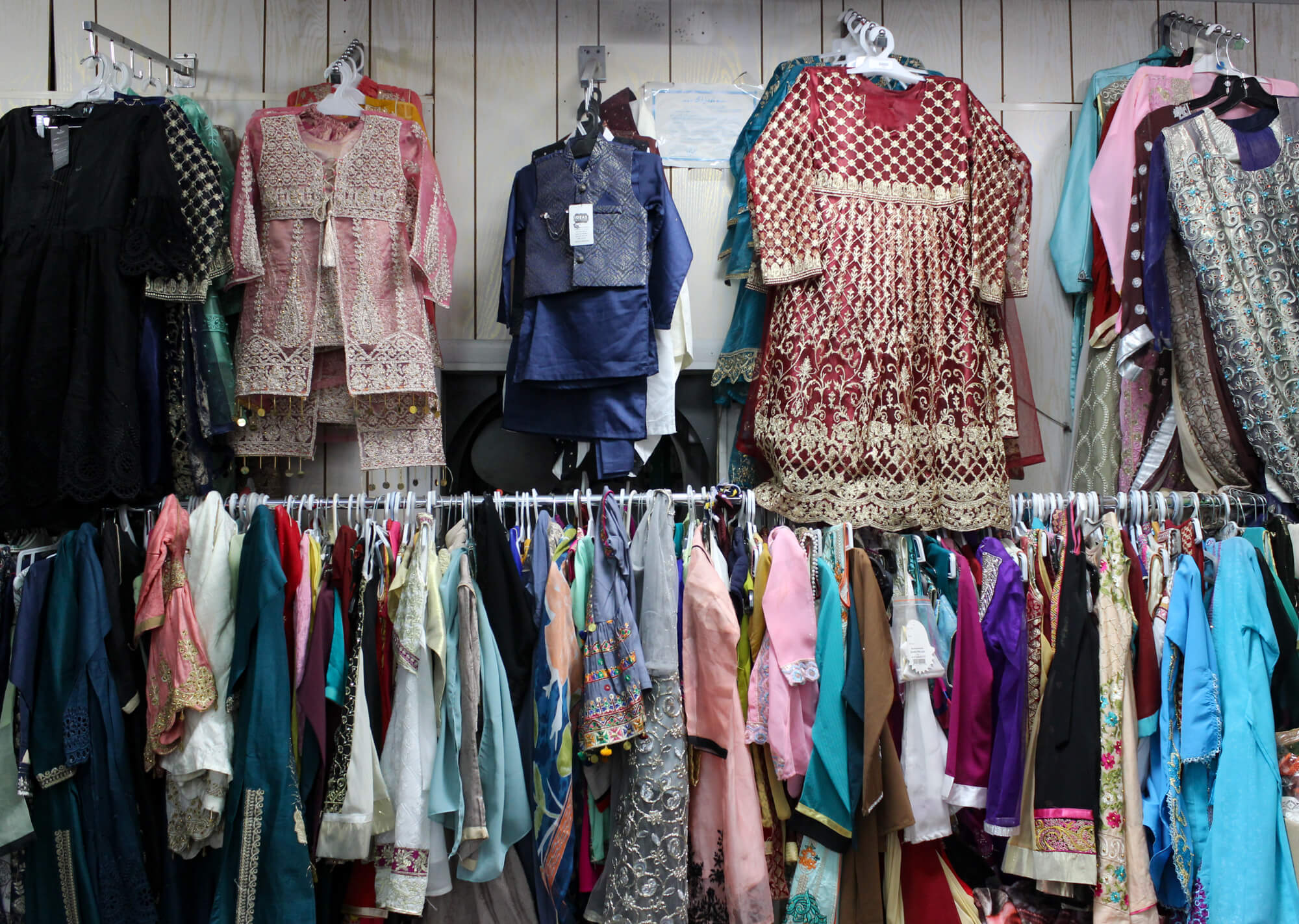
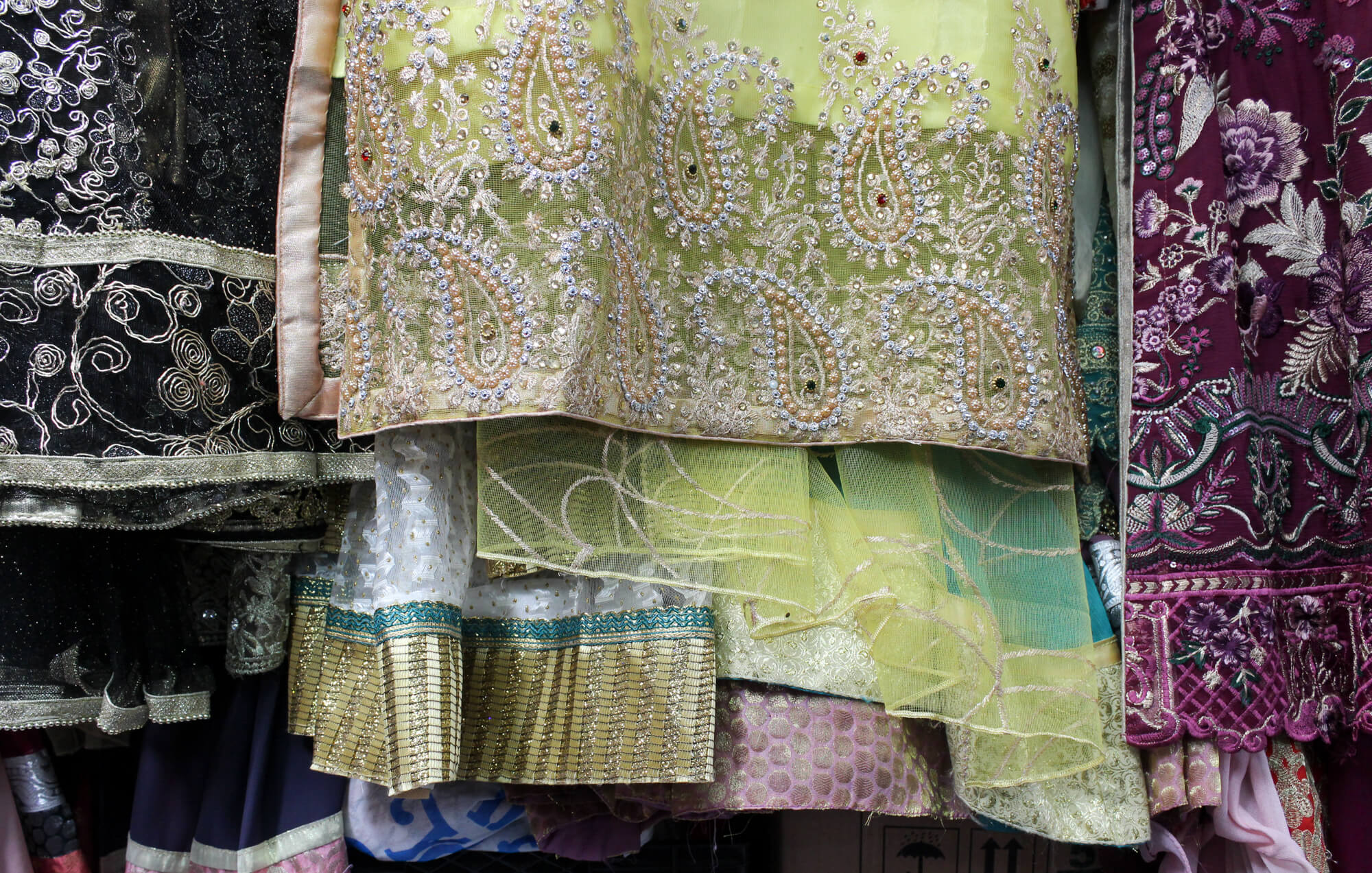
Ahmed’s family started arriving in Brooklyn in the 1980s when immigration policies weren’t so strict. She said everyone knew to get a place around the Kensington and Midwood areas, where the Pakistani community was starting to grow. When Makki Masjid, the area’s first mosque, opened in 1982 on Coney Island Avenue it instantly became a neighborhood pillar, drawing crowds of worshippers who often had to kneel on the sidewalk for Friday prayers. The area, which had previously been dominated by Jewish families, was well on its way to earning its Little Pakistan moniker.
“It was really bustling at that time. It was really nice,” Ahmed said. “Because it was developing you got to see it grow…it started growing a lot like the mid-’90s to the late ’90s is when it really started booming a lot.”
Then, the September 11 attacks hit and the community was left reeling. Almost immediately, there were sweeps of the neighborhood where anyone with a Muslim sounding name was taken away under suspicion, and many faced deportation for minor immigration issues such as failing to report a change in address, the Council of Peoples Organization (COPO) founder Mohammad Razvi told Gotham Gazette in 2021. Razvi told the New Yorker: “If they [the FBI] were looking for Jane Doe, they picked up John Doe and everyone else who didn’t have immigration paperwork. They were fishing.”
Around 20,000 Pakistanis of the 120,000 who lived in the area left, some going back to Pakistan and others to Canada, a COPO survey showed. While many efforts have been made to smooth relations with city officials and law enforcement, tensions still exist.
The community in Brooklyn, the largest in the five boroughs, now numbers around 18,177 — much less than the 120,000 of the late-’90s. Citywide, the population numbers around 54,335, the 2019 American Community Survey data analyzed by the Asian American Federation Census Information Center show.
Many families that were originally based in Brooklyn have relocated to Queens, Long Island, New Jersey, and even further afield, Ahmed said. The thinning community around Coney Island Avenue is one of the issues she said her family faces at Future Fashion.
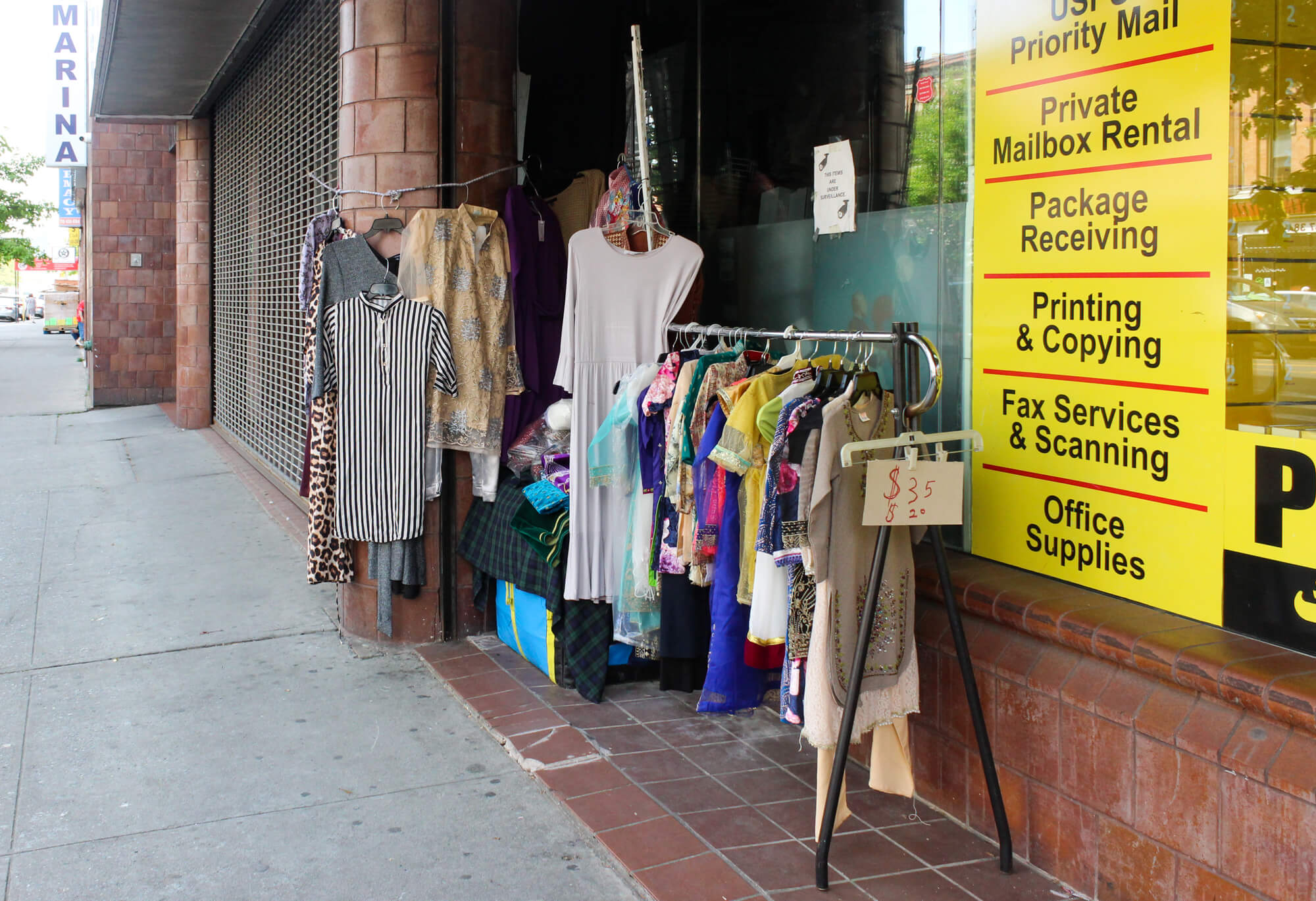
Keeping tradition alive
Future Fashion sells a range of traditional Pakistani clothing for both women and men, mostly imported from Pakistan. It is far from the only store on Coney Island Avenue known for selling traditional dress, and for its skill in altering clothing that is worn through, no longer fits, or never did. But, Ahmed said, she likes to keep things a bit different at the store, making sure she stocks garments that others don’t.
“I go by whatever is trending at the moment, also what people are asking for, what colors are in, what styles are in, but the fashion isn’t an extreme change – a lot of stuff is recycled every five to 10 years,” she said. For that reason, her family has grown a large and loyal customer base but, she said, many long-standing customers are finding costs in the neighborhood too high and are relocating.
“The last four or five years things started getting more expensive, especially with housing prices and a lot of people are wanting to buy a house and they just can’t afford it,” she said. “How long can you stay stuck in an apartment if your family is expanding? So people are moving out of this area.”
She said that meant the customer base was “slowly depleting,” and while some loyal shoppers would travel the distance, and they picked up a few newbies now and then, it rarely balanced out.
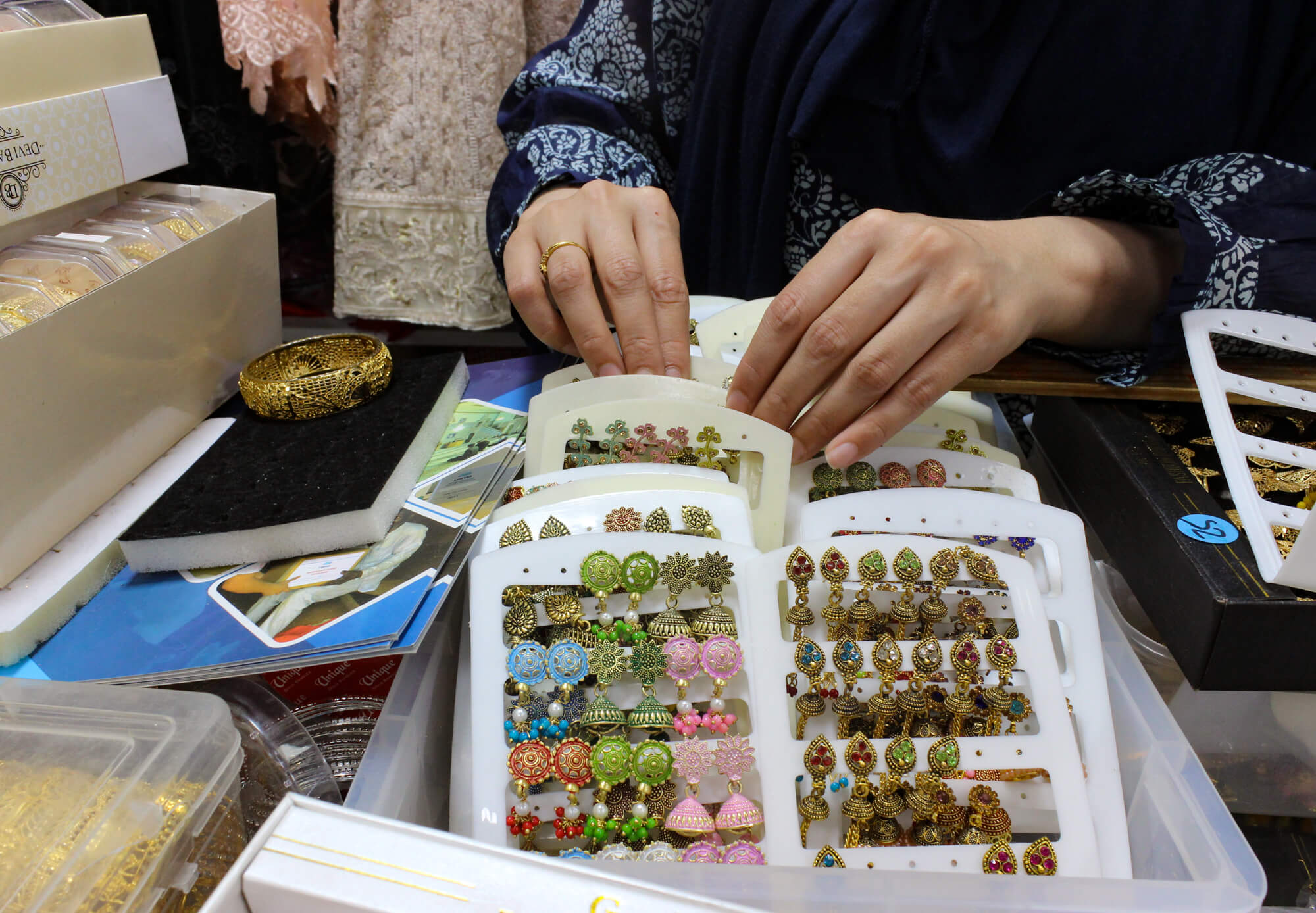
The slowing of business has been felt by garment stores up and down the avenue. Brownstoner talked to numerous store owners and staff, and they all reported the same issue: People just don’t have the money to spend. Many said when they arrived in Brooklyn from Pakistan they could survive happily on the $5 minimum wage they were earning back then, with the costs of living well within their means, and they lamented how much things have changed recently, pushing people into a cycle of work-eat-sleep-struggle.
Global pandemic closes doors
Then there was the pandemic. The Covid-19 outbreak and its subsequent lockdowns and other implications hit Brooklyn’s small businesses hard. Pakistani American Skilled Women Organization (PASWO) founder Atia Shahnaz estimated around 70 percent of the businesses in the neighborhood have closed because of the costs associated with the pandemic, including her husband’s small restaurant.
“Personally, my husband, his store had to close. We lost $100,000, more than $100,000 we lost because we weren’t able to pay the rent at that time. We had more than $30,000 owing in rent, so we just gave the key to the owner with all the stuff inside, that was a $100,000 investment, because we were not able to pay,” she said. “There’s a big loss in the small business community.”
Shahnaz formed PASWO during the pandemic with the aim of supporting Pakistani women and helping them to learn new skills and gain employment. She said she believes getting women into the workforce is the best way to lift Pakistani families in the area out of hardship, something she said she sees a lot of at PASWO’s weekly food distributions.
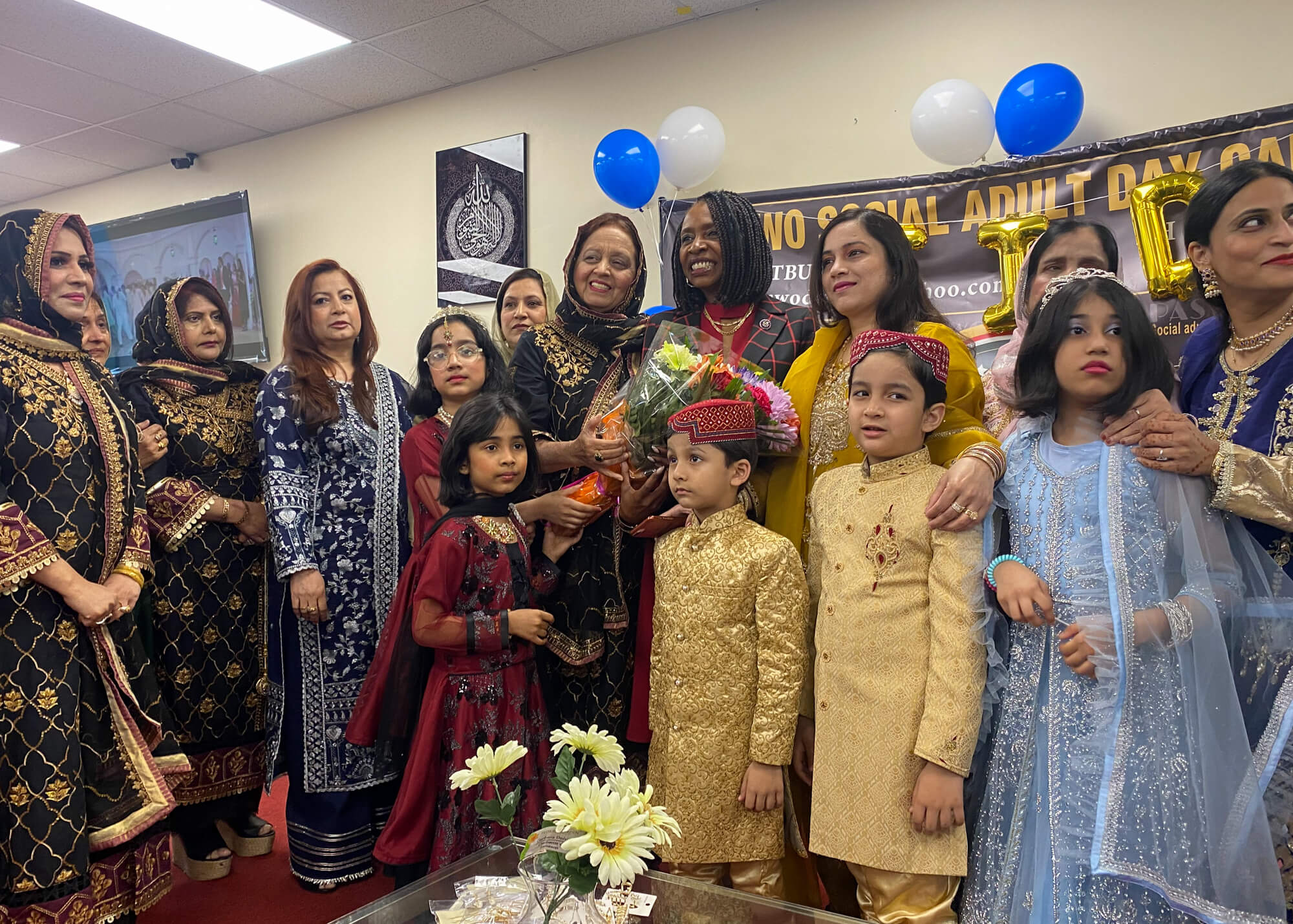
“I think we have to empower the women because most of our community depends on men, you know. I think we have to stop the one-man show in our families, [women have] to go to the job,” she said. “So we have to provide all the resources to have them navigate the city benefits and resources, you know, the opportunities that come outside and learn something.”
She said with many families having lost work during the pandemic and falling behind on rent, many are struggling to recover. “If only one person is going to the job, and they are taking care of the whole family, how are they able to pay the rent and buy the groceries, exactly how do you survive, how do you take care of kids.”
She said families in the area also need to take more advantage of government support, and find out how to access it. Of the garment store owners she had spoken to, none had received any government funding during or after the pandemic. The same is true for Ahmed and Future Fashion.
Loyal customers keep business going
“PPP we weren’t eligible for because [our business is] a corporation,” said Ahmed. “I did try a lot of grants and everything, but we got denied for everything. We got approved for a loan, but I thought, what’s the point of the loan? You’re gonna pay the interest first? And if I’m closed I’m not making anything, where am I paying from? So we got zero help, except for whatever was not for the business, but the individuals, the stimulus. But business wise we got absolutely nothing.”
Luckily Ahmed’s father was able to maintain his job and help the family get through the store closures, she said. One such closure came not long after the store had reopened: Given its location in Midwood, Future Fashion was subject to the zone closure due to the area’s high rates of Covid infections. Just three blocks away, the stores in Kensington could remain open. Even across the street, the stores were allowed to stay open.
“That made no sense. I understand why they did [the area lockdowns], but crossing the street. I mean, my mom would say, ‘Well, can Corona not cross the street?’” Ahmed said. “I did write to the governor’s office, but I never got a reply back.”
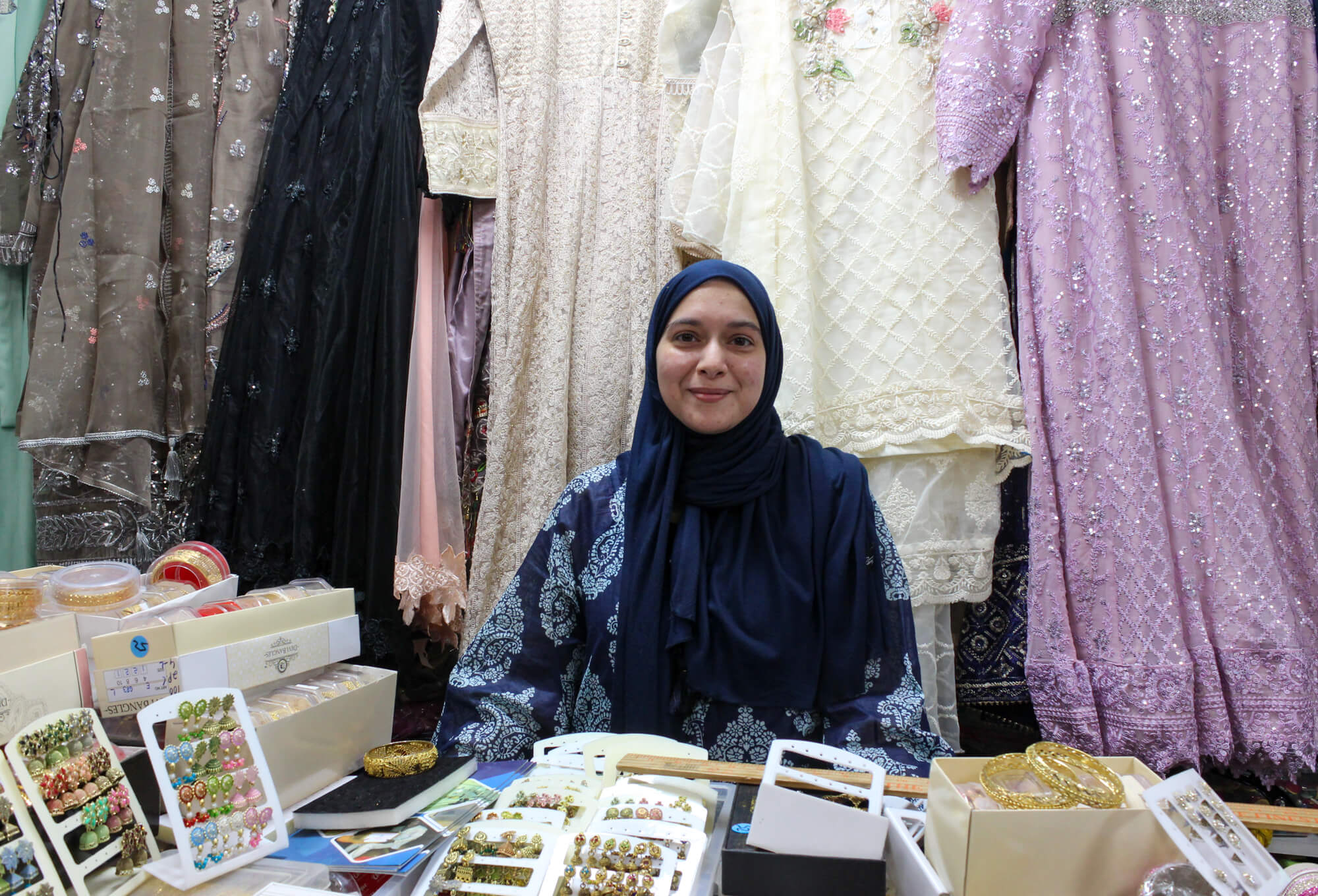
What has always kept the business going, and her family’s motivation to run it, Ahmed said, is its customers. “To be honest, that’s like one of the rewarding parts of this is that you know, you get to know them and their families, the families that come after. Just to keep them happy, and then you know, they trust you. The most important thing is that you’re providing for them, and they know they can come to you. You know, it’s those personal connections that you have,” she said.
“I’ve made a lot of good friends throughout the years. My mom has tons. And even if they’re not blood related, they’re like family. And you know, they treat you that way too. And that’s really nice, because I feel like we’re losing that as time goes forward, and everybody’s digital with everything.”
Losing that face-to-face interaction is one of the main things stopping Ahmed from making a full transition to online, and also that online can’t replicate the service they provide, namely alterations. However, she said, even with that and the relative recovery post-Covid, inflation has slowed things down.
“I think right now, you know, you understand the situation: are you going to buy food or are you [going to buy] clothes? And then everything else has increased. It’s okay, you know, it’s anticipated, so we try to work our way around that,” she said.
A growing understanding of Brooklyn’s Muslim community
This year, a range of politicians and groups across Brooklyn threw Iftar dinners during Ramadan and shined a spotlight on the holiday, highlighting an increasing acceptance and awareness of Brooklyn’s Muslim community, Brooklyn Chamber of Commerce’s Randy Peers said. The chamber had an Iftar dinner of its own, which Peers said was attended by a number of leaders from inside the Pakistani community both from Brooklyn and Pakistan.
Peers said the business group has been doing a lot of work in the local Pakistani community, which he said is now largely based across Coney Island Avenue, Brighton Beach, and Bath Beach. It has signed 23 memorandums of understanding with different chambers of commerce in Pakistan and is doing business counseling sessions for local business owners. The chamber is also translating its business basics course into Urdu.
“We’ve been doing much more work in this community than people realize, and we’ve actually seen tremendous positive growth within that community,” he said. However, in regards to the stores selling traditional garments, he said there are some specific challenges that are harder to overcome.
“The fact that the community has grown, which is good, it’s also spread out and… people move out of the neighborhood… and I think that that, of course, impacts the small shops,” he said. “With respect to that particular challenge, you know, there really isn’t much you can do from an outsider perspective. In some ways that’s kind of like the natural evolution,” he said. Legions of immigrant groups have ebbed and flowed in and out of what is now Kings County since the Dutch colonizers arrived almost 400 years ago.
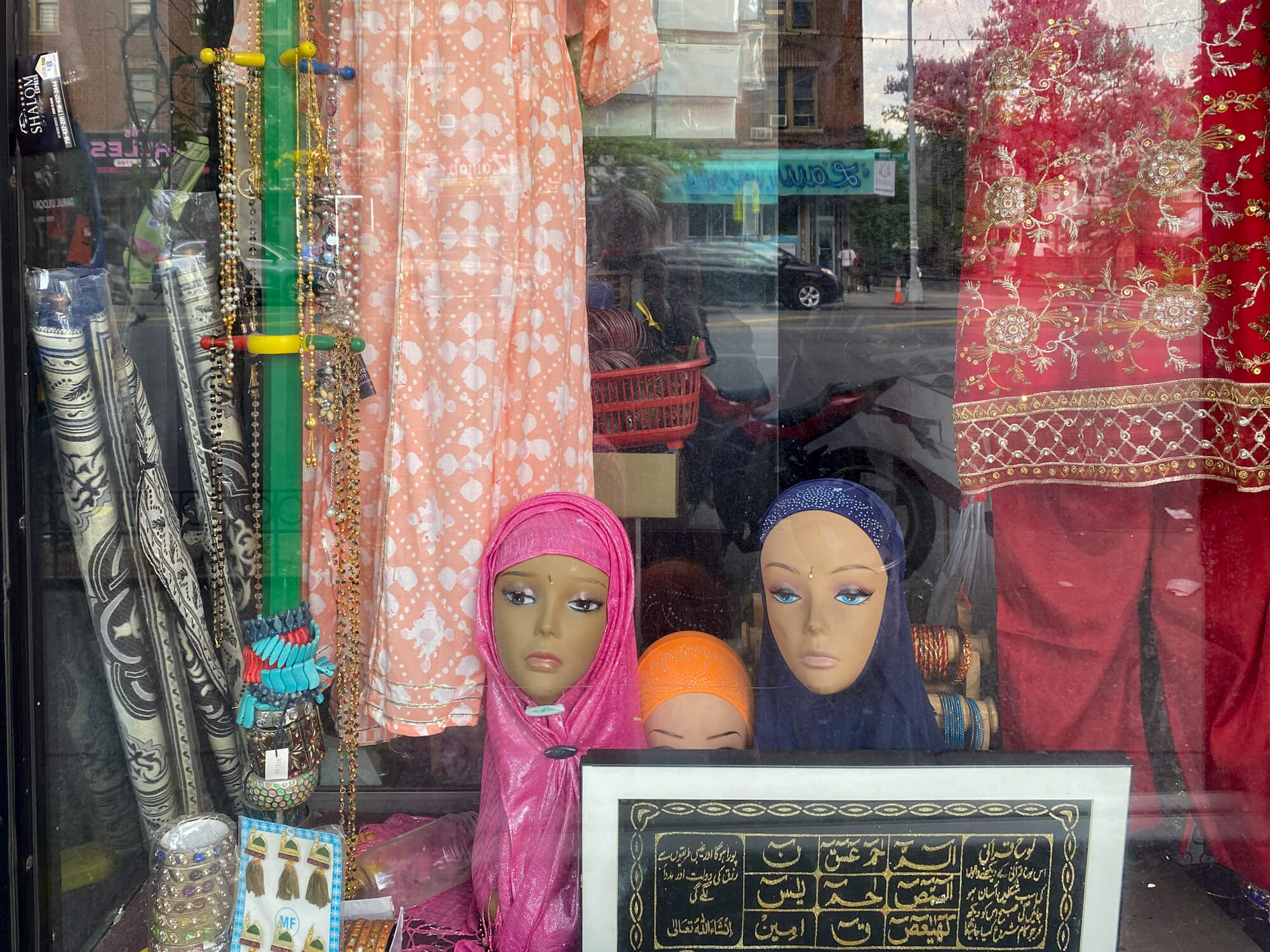
He said unlike restaurants in the area, which are able to attract a broader range of customers, the garment stores are less able to diversify their base given they deal in traditional Pakistani wares. “This is my advice I give to all communities: When it comes to small businesses in their neighborhood, consumers need to make a very conscious choice to shop local, and to spend their dollars within the community,” Peers said.
“It’s very hard in this era of point, click, shift through Amazon and other things, and you do have to be more deliberate, you have to be more conscious, you have to understand that the dollars that you spend in your community locally get circulated within that community, and that’s a huge, huge advantage, you know, in the long term.”
Long-term survival
Ahmed said as well as getting support from the local community, it is vital local elected officials show up and truly practice the small business rhetoric they preach during election season. “Come out here. Don’t come when it’s election time and, you know, smile, shake hands and then you’re gone,” she said.
“Come out, see what’s going on, see what you can do. I understand maybe their hands are tied sometimes because they’re just kind of intermediaries between like this level and then the next level and the federal level… I think it should be they come out to see what the issue is and try to get more attention on us.”
Ahmed said the main advocates local businesses have, understandably, are the people in the neighborhood, “I feel like they’re more vocal about it.” She said they also give owners the “positive energy” that people still want them around, that locals want to shop, and that they find value in what the stores offer.
“I guess, I don’t know, is it nostalgia? Are we holding onto something that’s dying out or not? But I think businesses like this will still always exist, it just depends on, I guess it’s a lot of different factors, and it’s your luck with these things as well.”
Ahmed said she does plan to move some of her business online, and at this stage is looking towards doing a hybrid of online and brick-and-mortar retail. With the declining foot traffic, and other factors affecting the business, she said she will eventually have to evaluate what to do with the physical store.
“We’re gonna see how things are looking in the future. I think it’s just unfortunate with a lot of brick-and-mortars, a lot of them are just shuttering because everything keeps increasing and your profit is decreasing. And it’s okay if your actual expenses like living and stuff would stay kind of stable, but that doesn’t,” she said.
“So you have to factor in everything. Is it worth it long term? We’ll see.”
[Photos by Anna Bradley-Smith]
This story was produced in partnership with the McGraw Center for Business Journalism at the Craig Newmark Graduate School of Journalism at the City University of New York.
Related Stories
- Lofty Pigeon Books to Open in Kensington, Adding to Slew of New Indie Bookstores in Brooklyn
- As Botanical Life & Style Closes on Tompkins, Black Girls Sew Fundraises for Classroom Van
- Bushwick Flower Stalls Create Hubs of Peace, Small Business Opportunities for Local Immigrants
Email tips@brownstoner.com with further comments, questions or tips. Follow Brownstoner on Twitter and Instagram, and like us on Facebook.

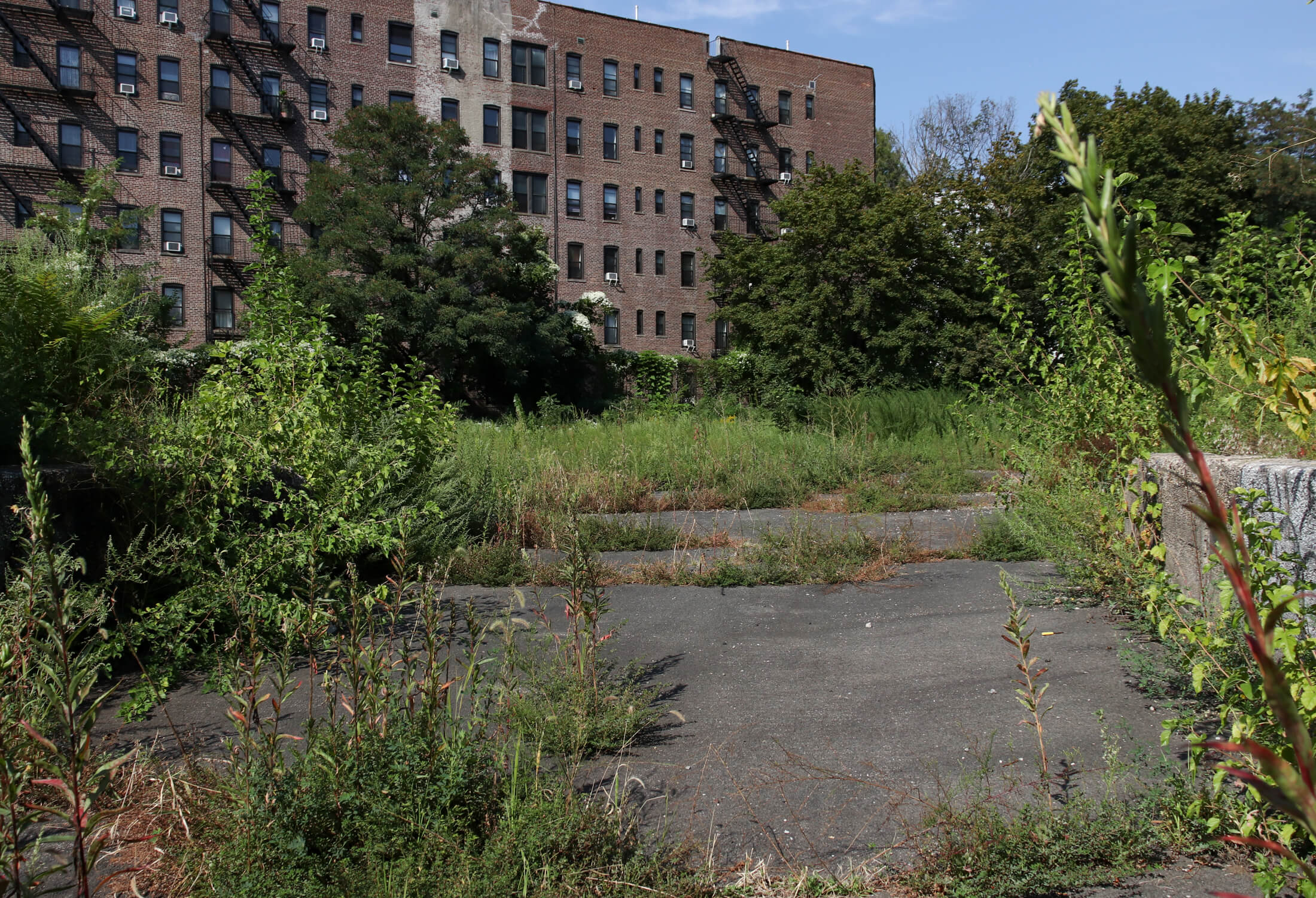
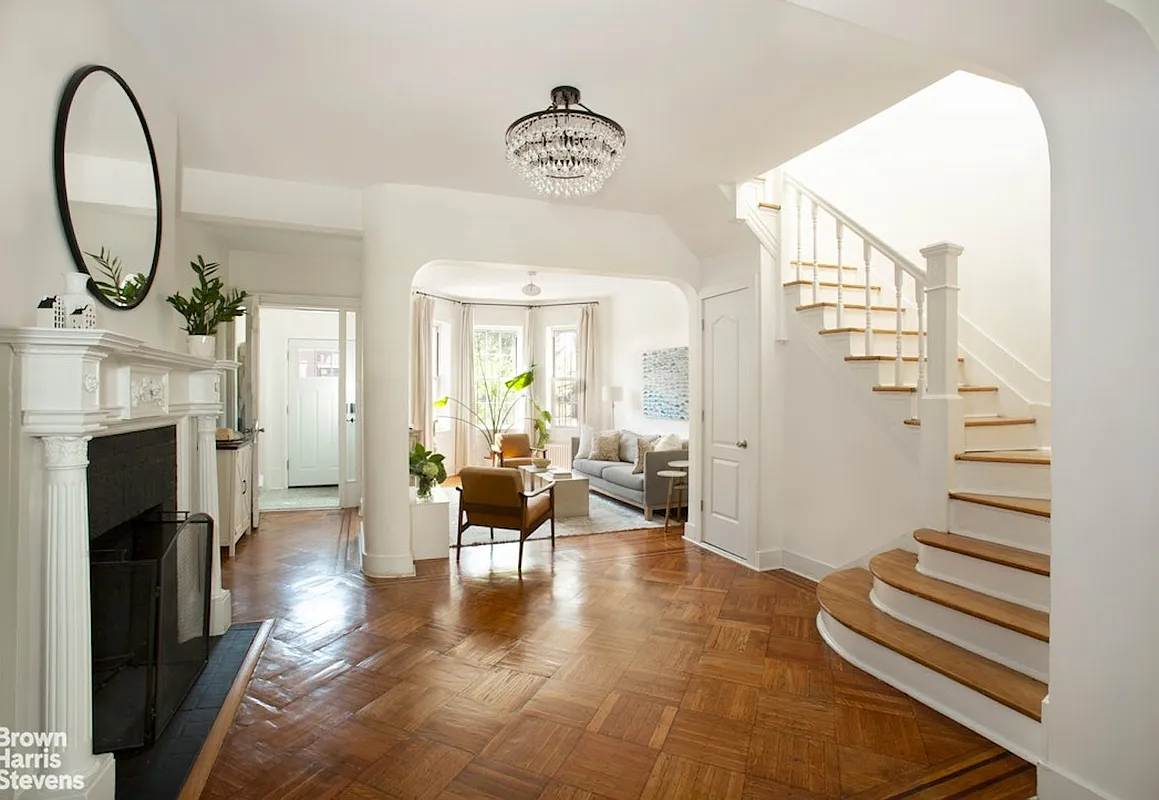
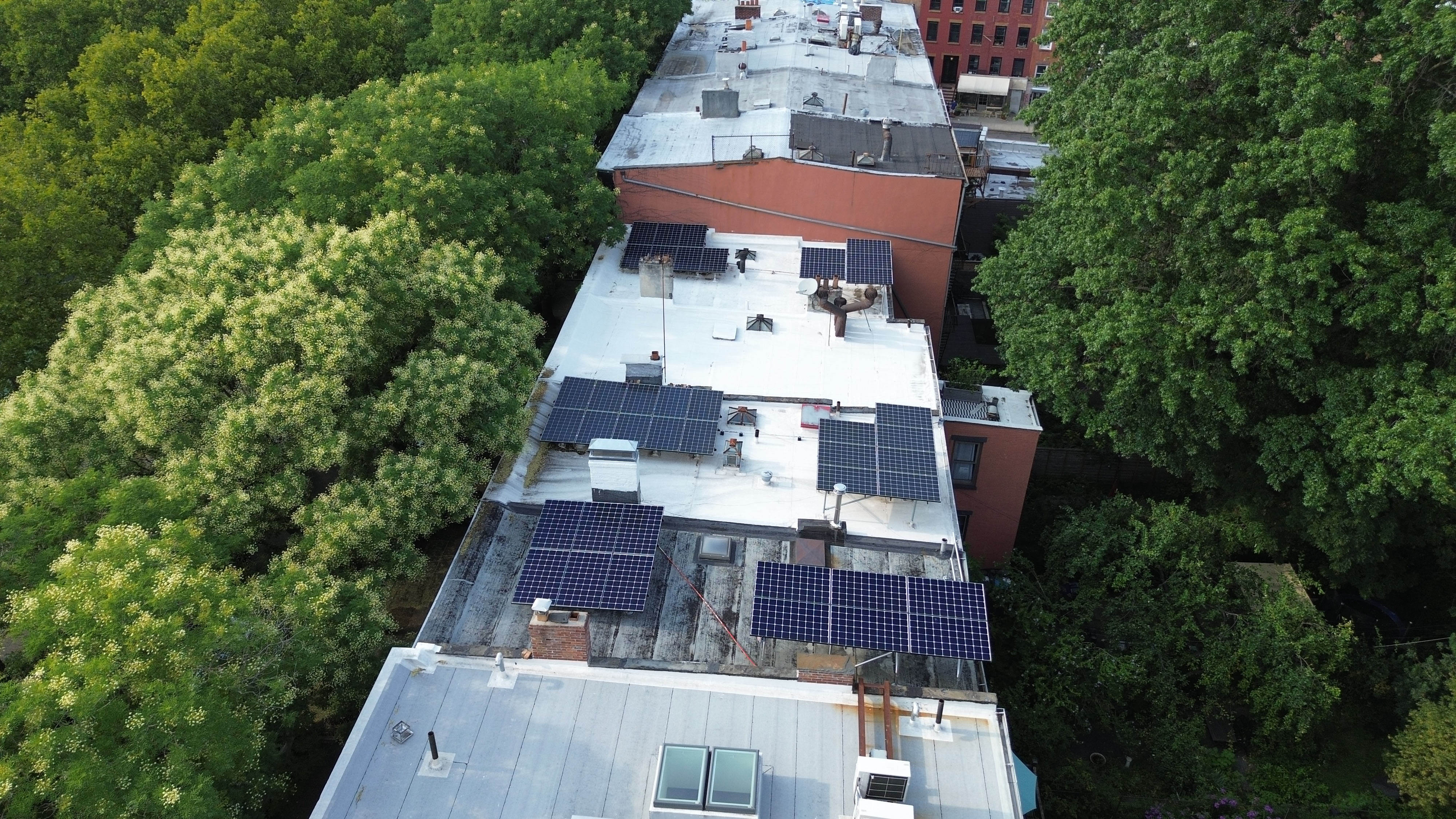

What's Your Take? Leave a Comment